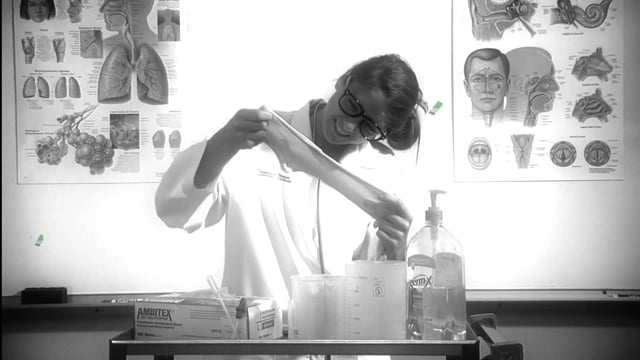- Parents Home
- Para Padres
- A to Z Dictionary
- Allergy Center
- Asthma
- Cancer
- Diabetes
- Diseases & Conditions
- Doctors & Hospitals
- Emotions & Behavior
- First Aid & Safety
- Flu (Influenza)
- Food Allergies
- General Health
- Growth & Development
- Heart Health & Conditions
- Homework Help Center
- Infections
- Newborn Care
- Nutrition & Fitness
- Play & Learn
- Pregnancy Center
- Preventing Premature Birth
- Q&A
- School & Family Life
- Sports Medicine
- Teens Home
- Para Adolescentes
- Asthma
- Be Your Best Self
- Body & Skin Care
- Cancer
- Diabetes
- Diseases & Conditions
- Drugs & Alcohol
- Flu (Influenza)
- Homework Help
- Infections
- Managing Your Weight
- Medical Care 101
- Mental Health
- Nutrition & Fitness
- Q&A
- Safety & First Aid
- School, Jobs, & Friends
- Sexual Health
- Sports Medicine
- Stress & Coping
Cystic Fibrosis
What Is Cystic Fibrosis?
Cystic fibrosis (CF) is an inherited disease in which the body makes very thick, sticky mucus. The mucus causes problems in the lungs, pancreas, and other organs.
People with cystic fibrosis (pronounced: SIS-tik fye-BROH-sis) get lung infections often. Over time, they have more trouble breathing. They also have digestive problems that make it hard to gain weight.
What Are the Signs & Symptoms of Cystic Fibrosis?
CF can cause symptoms soon after a baby is born. Other kids don't have symptoms until later on.
Symptoms of cystic fibrosis include:
- lung infections or pneumonia
- wheezing
- coughing with thick mucus (pronounced: MYOO-kus)
- bulky, greasy bowel movements
- constipation or diarrhea
- trouble gaining weight or poor height growth
- very salty sweat
Some people also might have nasal polyps (small growths of tissue inside the nose), frequent sinus infections, and tiredness.
How Is Cystic Fibrosis Diagnosed?
Doctors do tests on newborns that check for many health conditions, including cystic fibrosis. These find most cases of CF. To confirm the diagnosis, doctors do a painless sweat test. They collect sweat from an area of skin (usually the forearm) to see how much chloride (a chemical in salt) is in it. People with CF have higher levels of chloride.
Most children with CF are diagnosed by the time they're 2 years old. But someone with a mild form may not be diagnosed until they're a teen.
How Is Cystic Fibrosis Treated?
People with CF will have it all their lives. Doctors use different medicines depending on a person's needs. But all people with CF need to:
- Loosen and clear mucus. There are different ways to do this. The doctor might recommend that the person:
- Prevent or fight lung infections.Washing hands well and often, avoiding people who are sick, and staying at least 6 feet away from others with CF can help prevent infections. Taking preventive antibiotics also can help.
- Take enzymes. Most teens with CF need enzymes to help them digest food and get nutrients from it.
- Eat a high-calorie diet and take vitamin supplements, when needed.
What Causes Cystic Fibrosis?
Cystic fibrosis is caused by a change (mutation) in the gene that makes cystic fibrosis transmembrane regulator (CFTR) protein. To have CF, a baby must get two copies of the CF gene, one from each parent.
What Happens in Cystic Fibrosis?
In CF, the body makes abnormal CFTR protein or none at all. Without normal CFTR protein, the cells lining the pathways (tubes) inside some organs make thick, sticky mucus rather than the normal thin, watery kind.
Thick mucus can trap bacteria in the lungs, leading to infection, inflammation, and breathing problems. Mucus also can block the path where digestive enzymes flow between the pancreas and the intestines. This makes it hard for a teen to digest food and get the vitamins and nutrients they need from it.
Thick mucus can also affect the liver, the sweat glands, and the reproductive organs.
How Can I Deal With Cystic Fibrosis?
If you have CF, focus on staying as healthy as possible:
- Follow the treatment plan. Take medicines as directed, eat high-calorie meals and snacks, and follow instructions for clearing chest mucus.
- Focus on other things. Find pastimes to enjoy, like art, music, reading, or learning to cook. It's important for teens with CF to get exercise, so also look for ways to stay physically active.
- Turn to the care team. Your CF care team can offer practical tips on living with CF, and information about clinical trials, support groups, and new therapies.
- Learn all you can about CF. Experts are always working on new treatments to help people with CF have a better quality of life and live longer. Online, turn to resources like the Cystic Fibrosis Foundation website.
- Take charge of your medical care. Start early to help manage your CF. You can disinfect equipment, refill prescriptions, and schedule doctor visits. Ask the care team about ways you can get ready for things like going to college or getting a job. Learning about cystic fibrosis and its care can help you become a confident adult managing a chronic health condition.

Charly Tells Her Teacher She Has Cystic Fibrosis
Does your teacher know what CF is? See how Charly explained CF to her teacher, including why she might need to be excused from class at times.